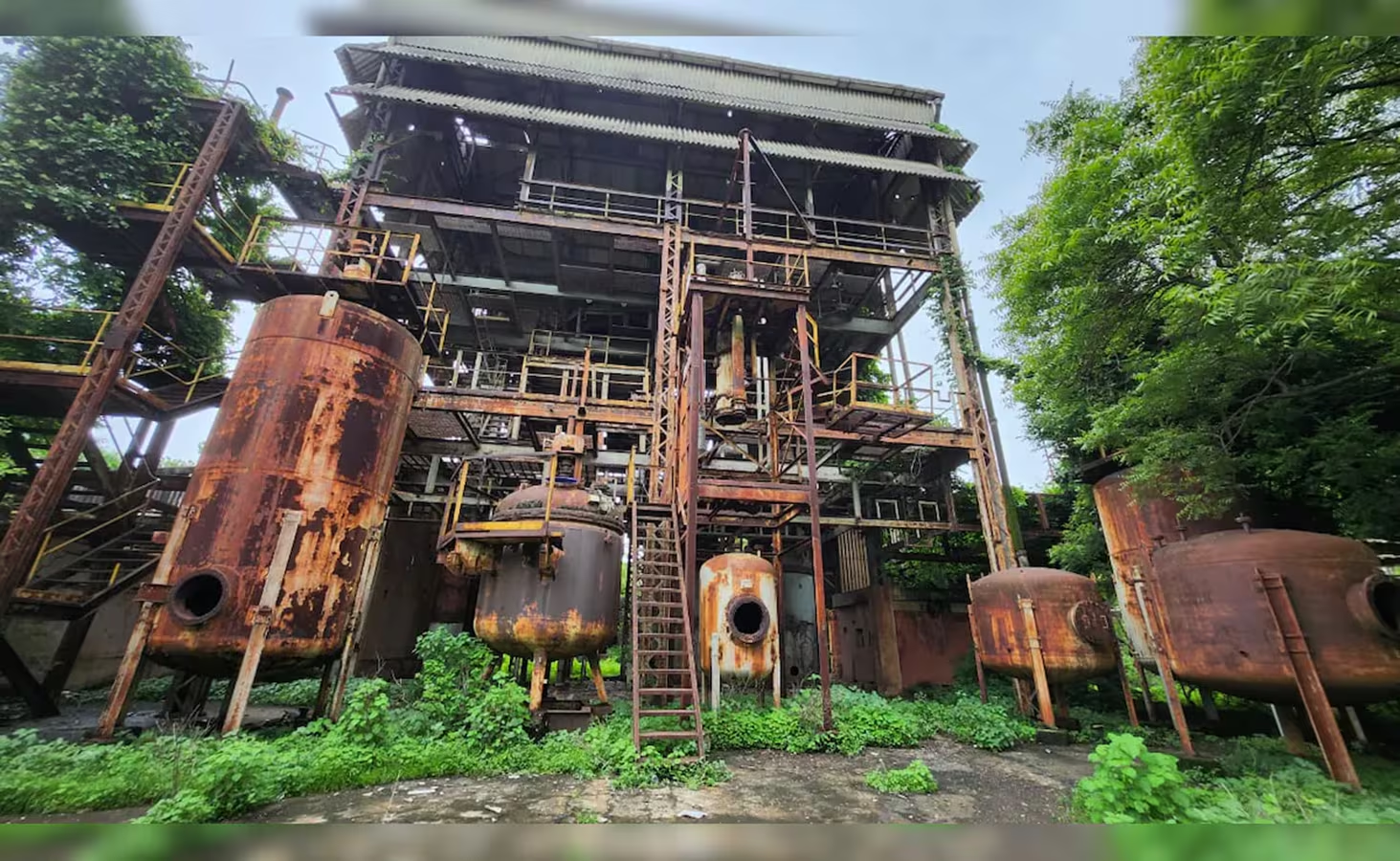
Bhopal: Container trucks carrying hazardous chemical waste from the Union Carbide India Limited (UCIL) plant in Bhopal have been parked at the Ramki factory in Pithampur, Dhar district, Madhya Pradesh, for over 24 hours. This toxic waste, a stark reminder of the 1984 industrial disaster, was brought to Pithampur for disposal at a state-of-the-art Treatment, Storage, and Disposal Facility (TSDF). However, the decision to relocate the waste has ignited protests over potential health and environmental risks.
The state government claims that the Pithampur facility is the only one in Madhya Pradesh capable of safely incinerating hazardous waste. Operational since 2006, it has been handling industrial waste from across the state. Despite these assurances, local residents and political leaders are voicing strong concerns about the plan.
On Thursday, thousands participated in silent marches in Pithampur to express their opposition to the waste disposal. Protesters have called for a complete shutdown of the industrial town today, Friday.
Political figures from both the ruling BJP and the opposition Congress have weighed in. BJP veteran and former Lok Sabha Speaker Sumitra Mahajan, from Indore, has advocated for a thorough scientific evaluation before proceeding with the disposal. State Congress chief Jitu Patwari has raised alarms, suggesting that the disposal could heighten cancer risks for residents.
“We are not politicizing the issue, but we need clear evidence from experts regarding the safety and environmental impact of this disposal process before moving forward,” Patwari stated.
In response to these concerns, Chief Minister Mohan Yadav emphasized that the waste’s transportation to Pithampur was based on reports submitted to the Supreme Court. He referenced a state-sponsored study indicating negligible health impacts on nearby villages and assured that the disposal process would occur under the strict oversight of the Central Pollution Control Board (CPCB) and the Madhya Pradesh Pollution Control Board (MPPCB).
As tensions rise, uncertainty lingers over when the waste will be incinerated, with the hazardous containers currently remaining idle in Pithampur as the situation unfolds.
